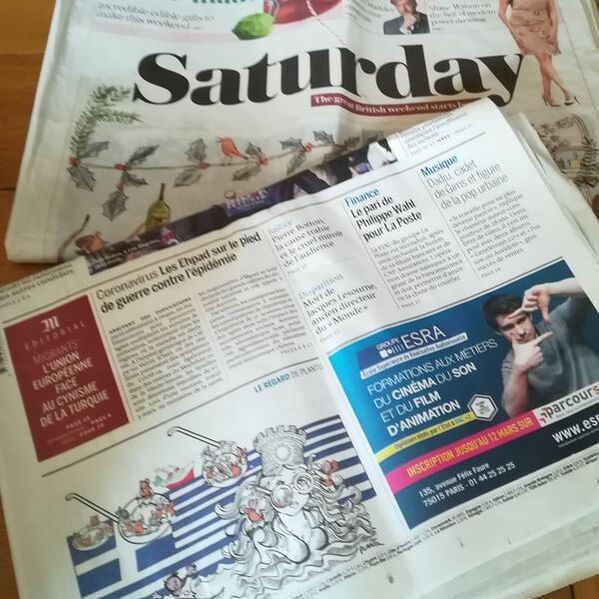|
How many times have I heard learners of English confuse time and times and new and news? Countless times! Too many times to mention! All the time! (notice the difference?) So let’s look at how and when we use these words.
Times or Time? First look at these common expressions using time and think about their meaning. Time and tide wait for no one. (Chaucer 1395) Time is money! (Benjamin Franklin) Time is the wisest counselor of all. (Pericles) There is no time like the present. Time flies when you are having fun! Time refers to the passing of seconds, minutes, hours and days months and years. It is uncountable and has no plural form. All the above expressions use the word time in the uncountable form because they are talking about time in general. You all know the question what time is it? (It's 8 o'clock). But if you want to ask a question about the quantity of time, we use how much. For example: How much time did you spend on your homework? Much (not many) is used for uncountable nouns. ________________________________ Times, with an ‘s’ has a completely different meaning. It refers to the frequency that something is done. Look at the examples below: A: How many times have you visited London? B: Three times. In 1989, 1995 and last year and I’d love to return. A: How many times have you spoken with friends this week? B: Only once (one time) but I’ve spoken a lot with my family. A: How many times have you clapped outside your house to support people in the healthcare system? B: Every night! I’ve heard people make a mistake with the word 'time' many times! All the above questions and sentences ask about or refer to the frequency of events. Times is a countable noun with a singular form (time) and a plural form (times). This is how we use it: 1 x = once (one time) John has visited New York once (one time). 2 x = twice (two times) My cat has caught a mouse twice this week (two times). 3 x = three times I must have seen this film at least three times. 4 x = four times I've asked you four times to tidy your room! When we ask a question about the quantity or number of times, we say how many times...? Many is used with countable plural nouns (not much). We can also use the question how often…? New vs News New and news poses a similar problem but the reasons are different. New is an adjective. The opposite of old. And as you all know, adjectives never have a plural form in English. Look at the examples: Peter has got a new job. He is starting in three weeks. I had to buy two new pairs of glasses this year, because I lost my first pair. News is a noun. It refers to the facts about world events which are reported on the TV, on the radio or in a newspaper (a paper full of news). It is an uncountable noun but which ends in an ‘s’. The rules for uncountable nouns apply:
The news on the TV is often bad. I’ve got some news to tell you – Martin and Rosie are getting married. There was only one piece of news last night that made me laugh. The rest was awful. So now you know the rules, try this exercise. Choose the correct word in brackets in each sentence. The answers are at the bottom.
There is no time like the present to get to grips with this lexical challenge! The next time that you listen to the news, make a new resolution to try and reduce the number of times that you make a mistake with these words! Good luck! Answers: 1. time 2. time 3. times 4. news 5. time 6. time 7. new 8. times 9. time 10. news 11. times 12. news Les commentaires sont fermés.
|
Philippa StaceyPhilippa Stacey a fondé Eureka en 2007. Elle vit et enseigne l’anglais aux professionnels en France depuis 1993. Archives
Novembre 2023
Catégories |




 Flux RSS
Flux RSS